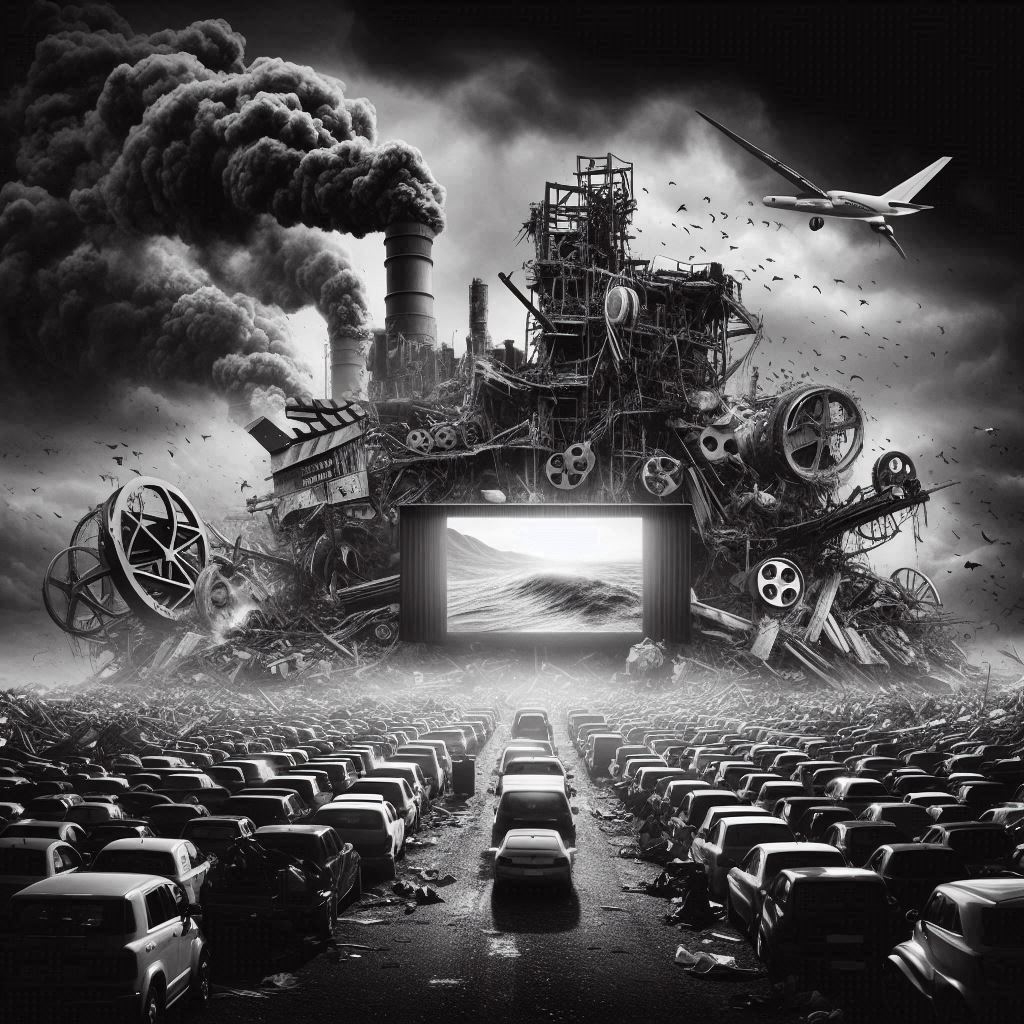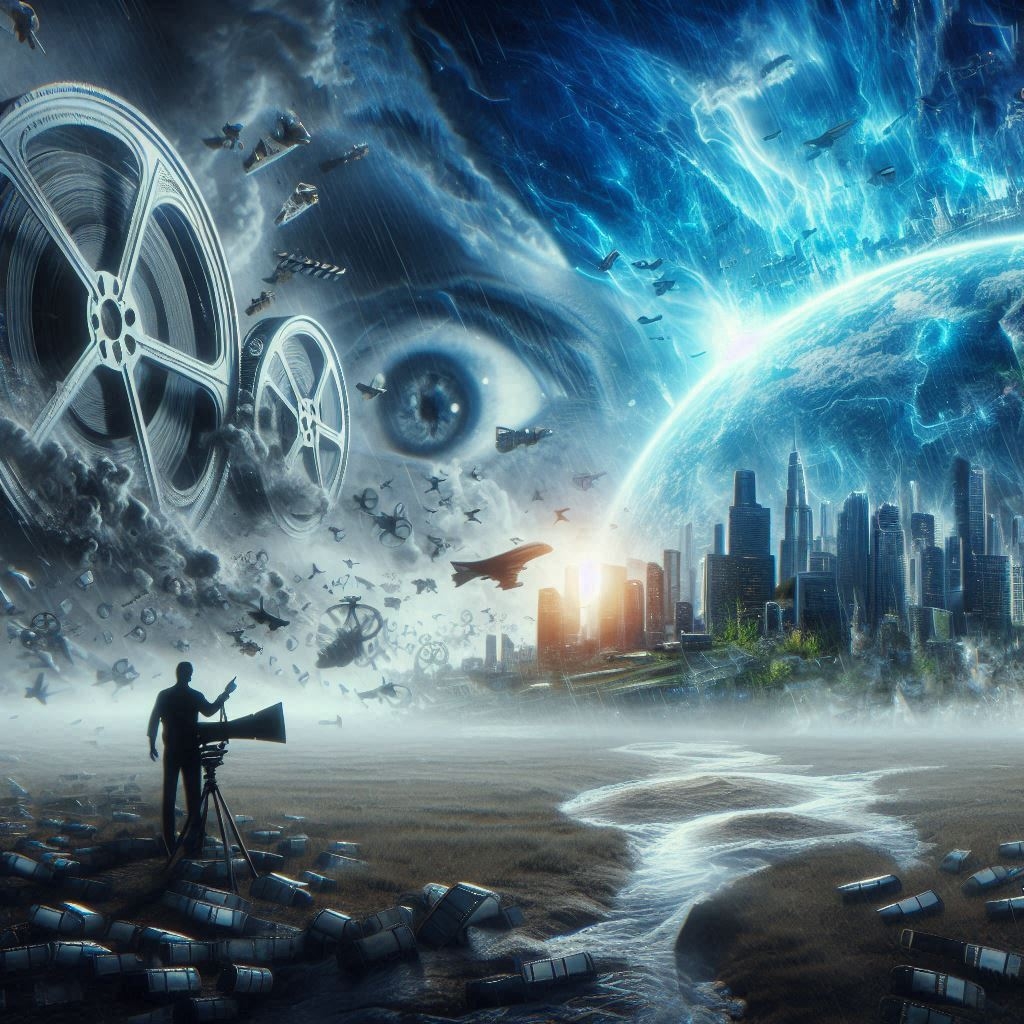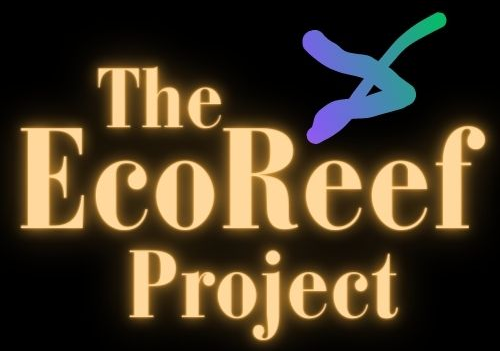
The Impact of Movies on Our Perception of the Environment
Environmental Movie Magic & the movies themselve have long been a powerful medium for storytelling, capable of transporting audiences to different worlds, times, and perspectives. Beyond entertainment, movies hold significant potential to influence how we perceive and interact with our environment. Through compelling narratives and vivid imagery, films can shape our understanding of environmental issues, inspire action, and alter the way we view our surroundings.
The Power of Visual Storytelling
Visual storytelling in movies can create lasting impressions. Filmmakers use cinematography, special effects, and sound design to craft immersive experiences that leave audiences pondering long after the credits roll. Environmental Movies like “Avatar,” with its lush, interconnected world of Pandora, or “Interstellar,” which explores the fragility of Earth’s environment, employ stunning visuals to drive home the urgency of environmental conservation. These films invite viewers to consider the beauty and complexity of our natural world, fostering a deeper appreciation for its preservation.
Additionally, “The Day After Tomorrow” dramatizes the potential catastrophic effects of climate change. Its intense depiction of sudden global cooling due to disrupted ocean currents raises awareness about the potential severity of ignoring environmental issues. Similarly, “Wall-E” presents a future Earth covered in waste, highlighting the consequences of unsustainable consumerism and the importance of waste management and recycling.

Raising Awareness and Advocacy
Environmental Movies have the power to bring environmental issues to the forefront of public consciousness. Documentaries like “An Inconvenient Truth” and “Before the Flood” highlight the impact of climate change and the urgency of taking action. By presenting scientific data and personal stories, these films make complex topics more accessible and emotionally resonant. They encourage viewers to become informed advocates for the environment and to engage in conversations about sustainability and conservation.
“An Inconvenient Truth,” featuring former Vice President Al Gore, became a groundbreaking film that spurred global dialogue on climate change. It presented compelling evidence of global warming and its potential impact on the planet, prompting audiences to consider their own carbon footprints. “Before the Flood,” featuring Leonardo DiCaprio, further emphasized the urgent need for climate action, showcasing real-world consequences of environmental neglect and the potential solutions to combat climate change.

Inspiring Change Through Empathy
One of the most profound ways movies especially environmental movies impact our perception of the environment is by fostering empathy. Characters in films often face challenges and dilemmas that mirror real-life environmental struggles. For example, “Erin Brockovich” tells the true story of one woman’s fight against industrial pollution, revealing the human cost of environmental neglect. By connecting emotionally with these characters, viewers are more likely to empathize with environmental issues and feel motivated to make a difference in their own lives.
In “The Lorax,” based on Dr. Seuss’s classic tale, audiences witness the devastating impact of deforestation through the eyes of a child. The film’s portrayal of the loss of natural habitats and its consequences for wildlife encourages viewers to consider the importance of environmental stewardship. Similarly, “FernGully: The Last Rainforest” uses animation to illustrate the destruction of rainforests and the vital need to protect these critical ecosystems.
Shaping Cultural Narratives
Movies play a crucial role in the way we think as a society by shaping cultural idelas and societal values. Films set in natural environments, such as “The Revenant” or “Into the Wild,” emphasize the raw beauty and untamed power of nature. These stories can shift cultural perceptions, portraying nature as a force to be respected and protected rather than exploited. Additionally, movies with dystopian themes, like “Mad Max: Fury Road,” serve as cautionary tales, warning of the consequences of environmental degradation and resource scarcity. These are why environmental movies are important.
“The Revenant” showcases the relentless power of the natural world, with its protagonist enduring harsh wilderness conditions. This portrayal underscores the idea that nature is both a provider and a force to be reckoned with, highlighting the importance of maintaining a harmonious relationship with our environment. “Into the Wild,” based on a true story, explores the allure of nature and the desire to escape modern society, encouraging viewers to appreciate the simplicity and beauty of the natural world.

Driving Action and Innovation
Beyond raising awareness, environmental movies can inspire tangible action and innovation. Films like “WALL-E” and “The Lorax” highlight the importance of sustainability and environmental stewardship. These movies often depict futuristic or fantastical scenarios that challenge audiences to think creatively about solutions to environmental problems. They can spur interest in green technologies, renewable energy, and sustainable practices, encouraging viewers to adopt eco-friendly habits and support environmental initiatives.
“WALL-E,” set in a future where Earth has become uninhabitable due to excessive waste, inspires viewers to consider the long-term impact of their consumption habits. The film’s depiction of a lone robot cleaning up the planet serves as a poignant reminder of the importance of waste reduction and recycling. “The Lorax” uses its colorful characters and engaging narrative to advocate for reforestation and the protection of natural resources, inspiring viewers to take action in their own communities.
Conclusion
Movies have a unique ability to influence our perceptions, attitudes, and behaviors towards the environment. Through powerful visuals, compelling narratives, and emotional connections, films can raise awareness of environmental issues, inspire empathy and action, and shape cultural values. As we continue to face global environmental challenges, the role of environmental movies in fostering a greater understanding and appreciation of our natural world becomes increasingly important.
Join the Discussion
What are your thoughts on the impact of movies on our perception of the environment? Have you encountered any films that changed the way you view environmental issues? How do you think movies can further contribute to environmental awareness and action?






